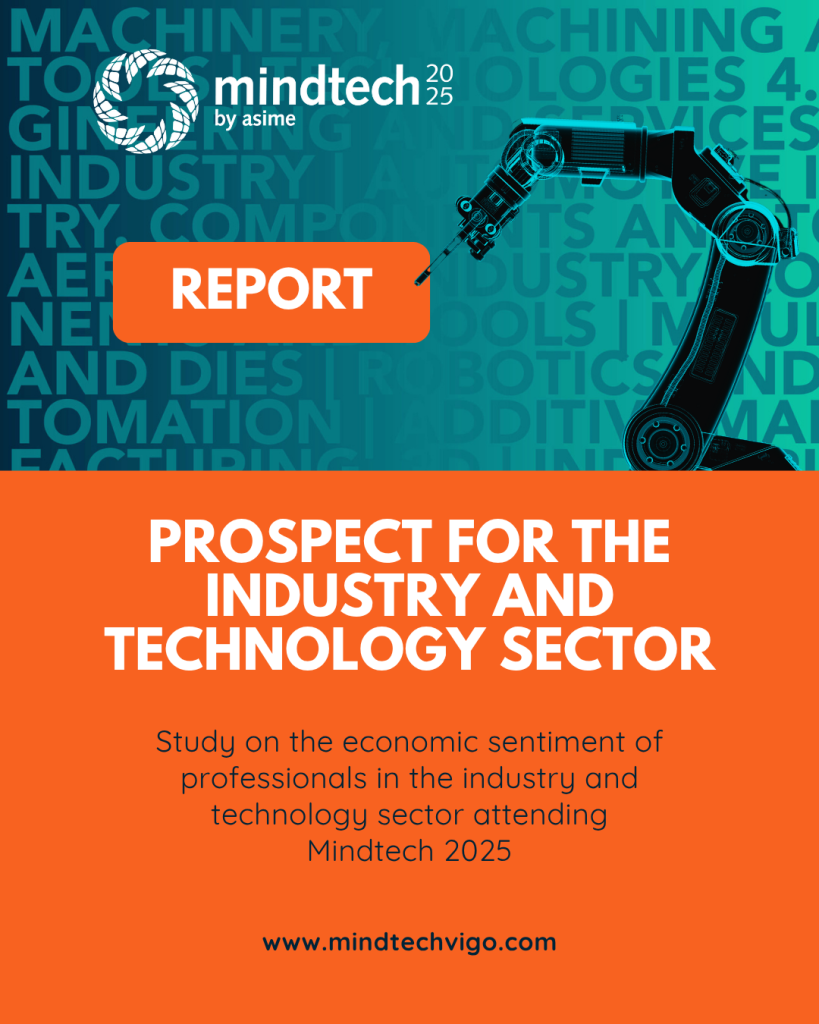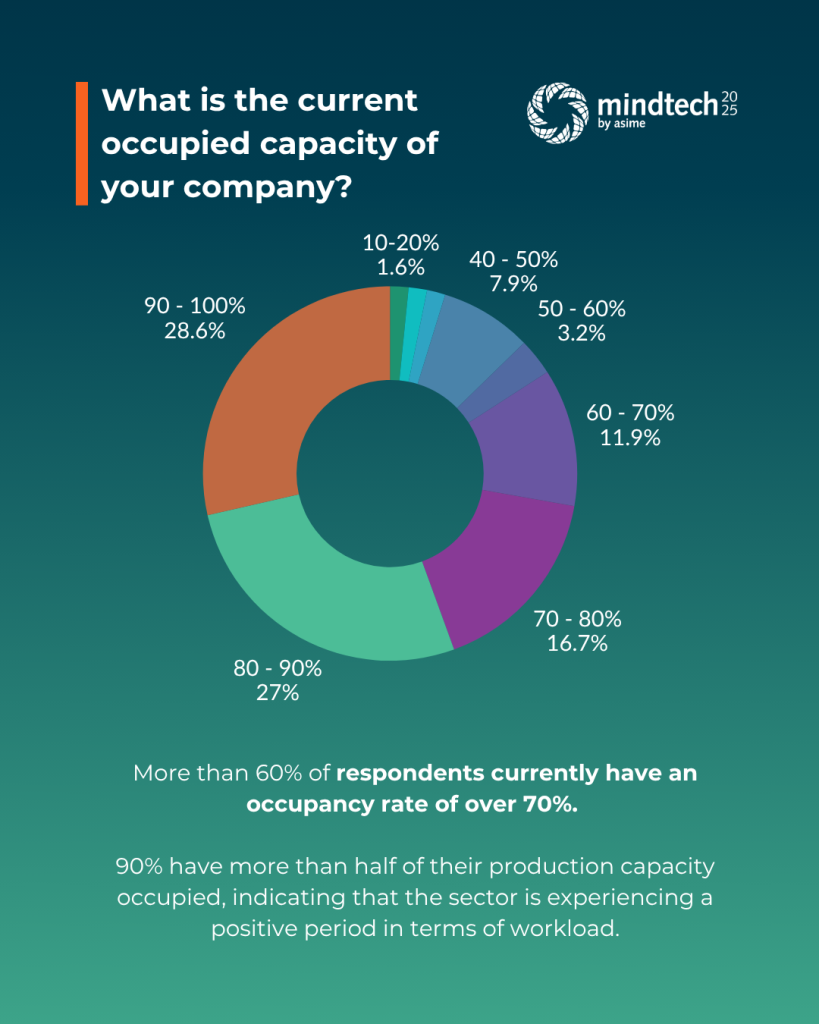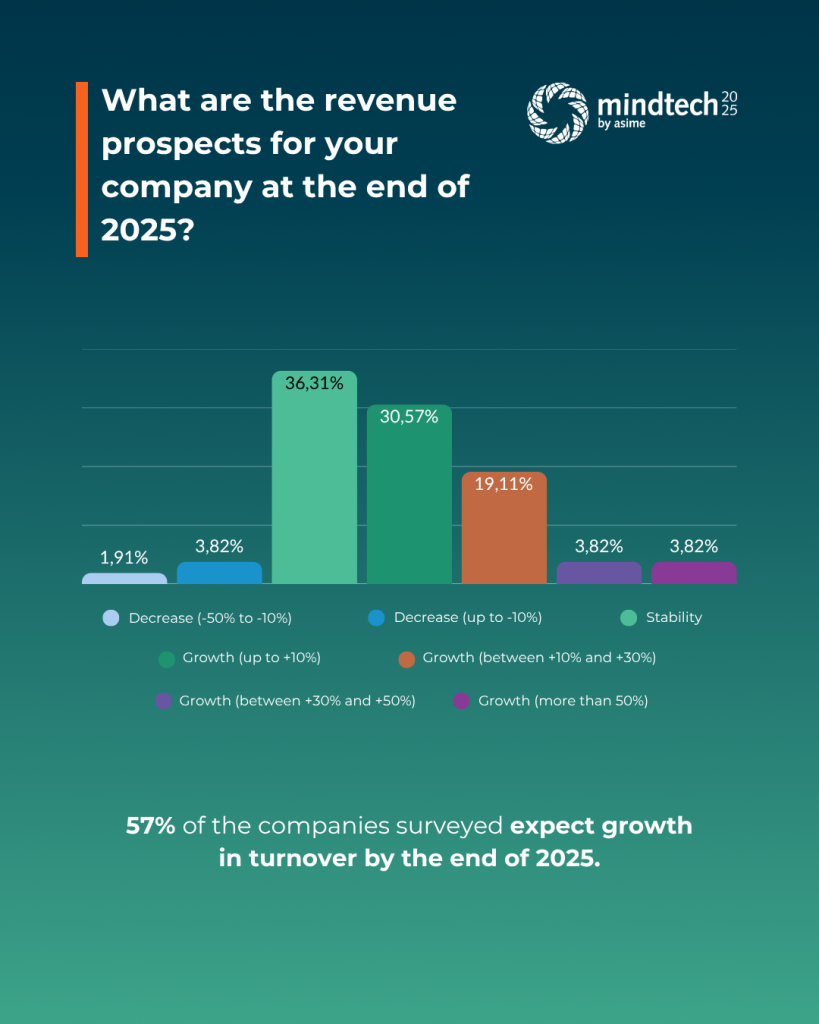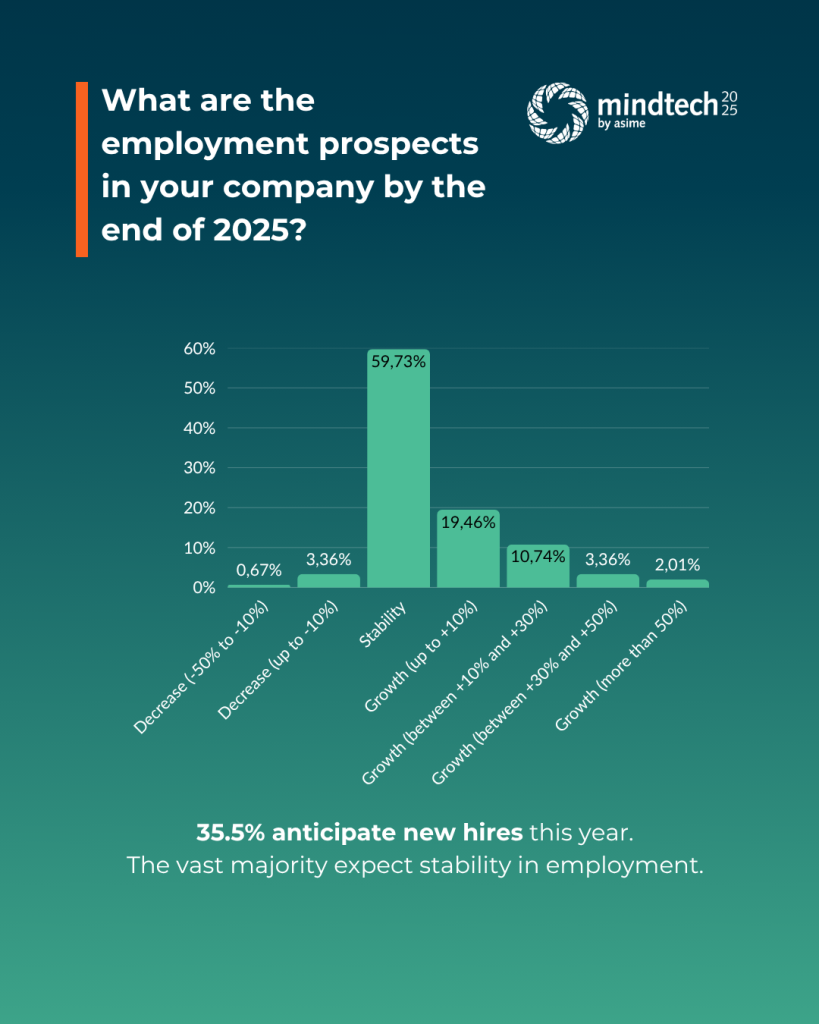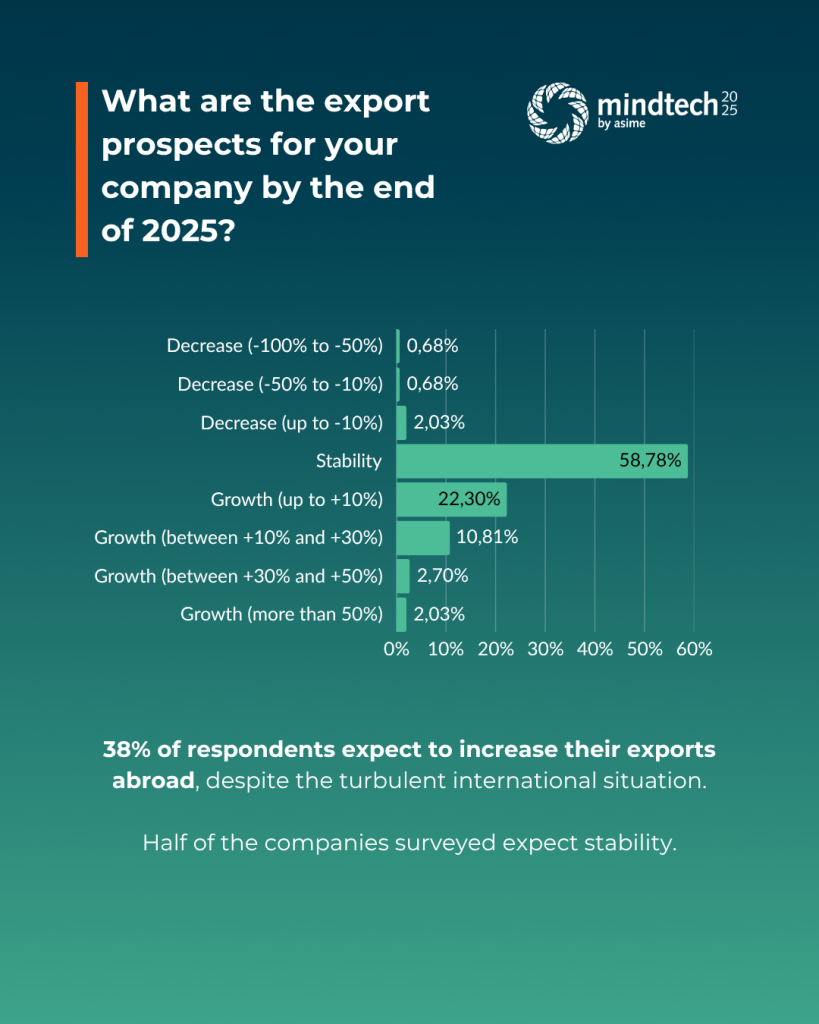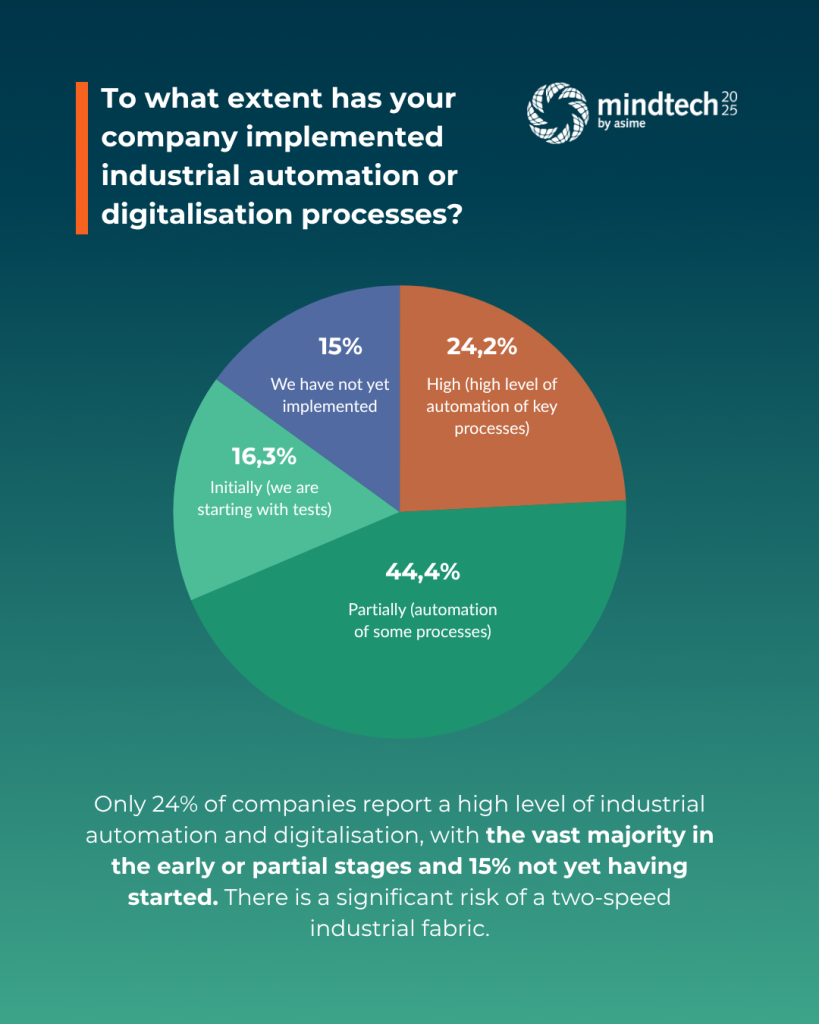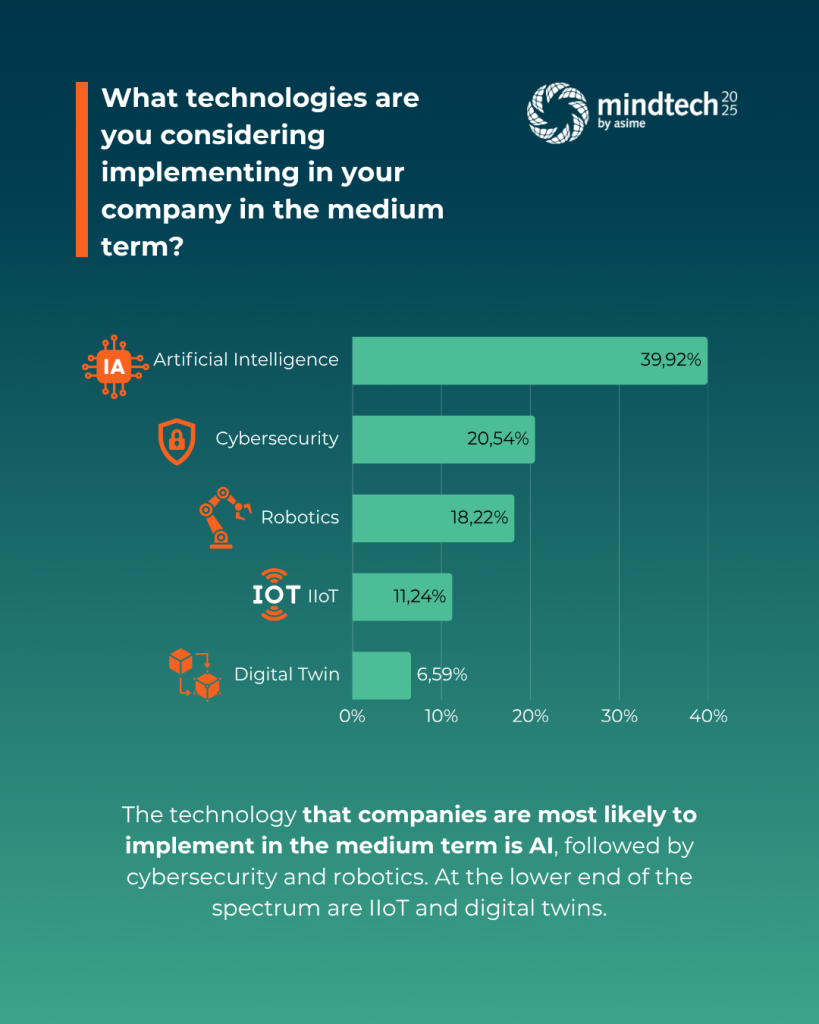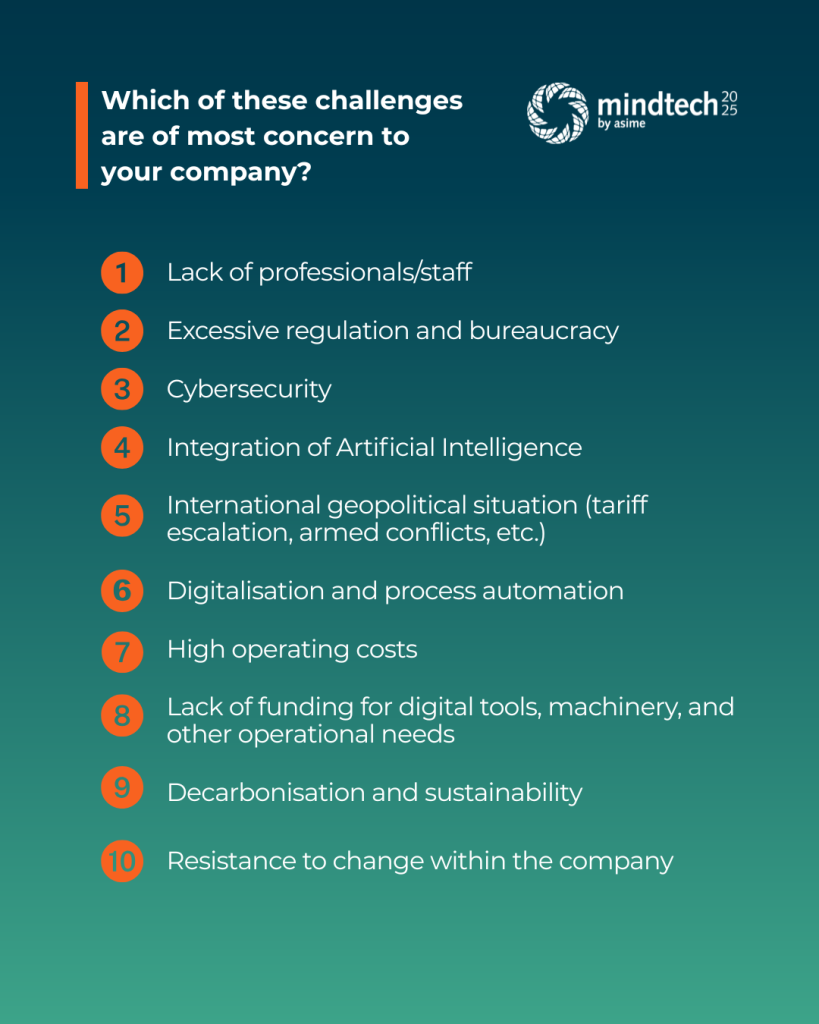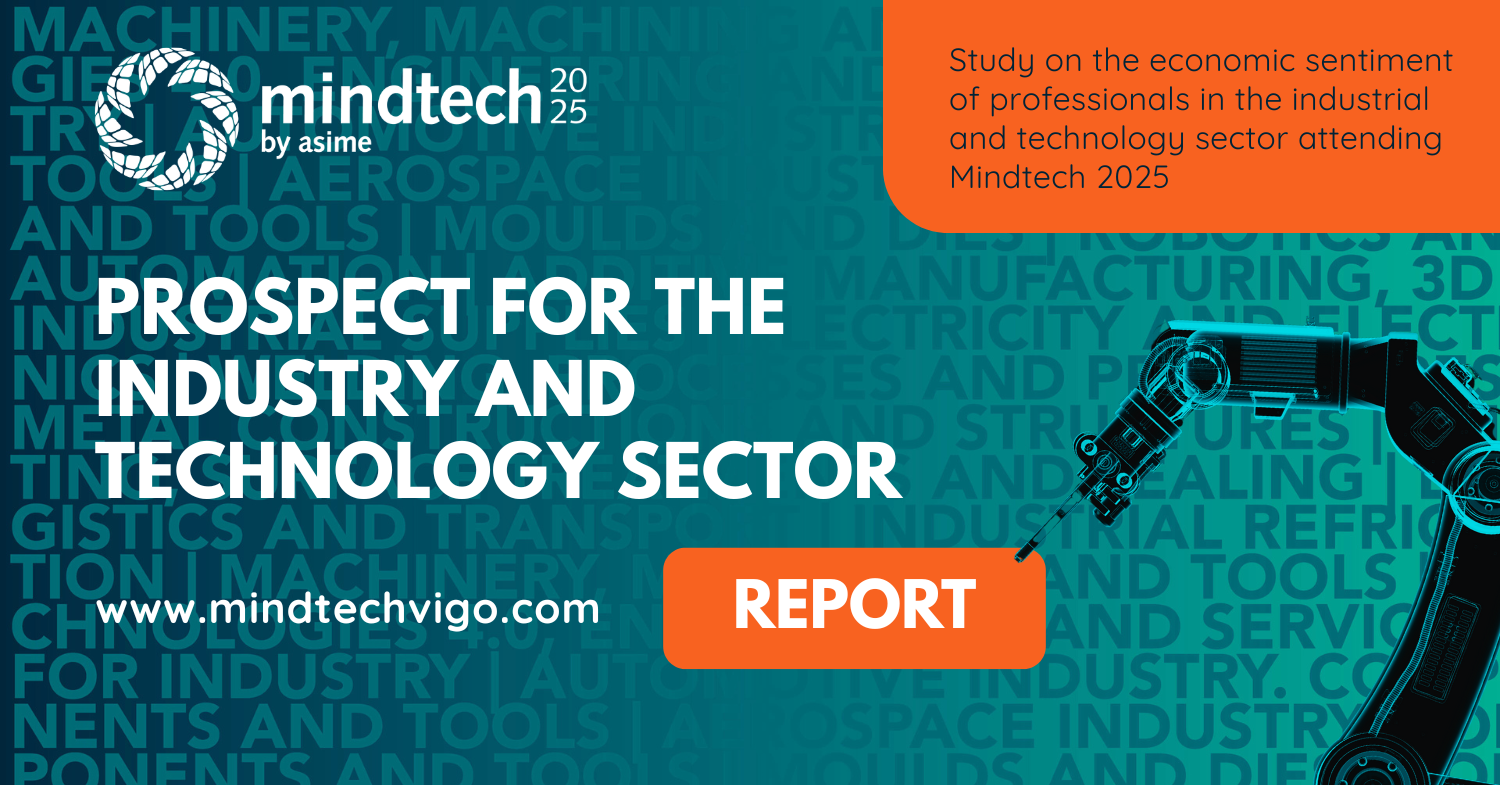On the occasion of the 4th edition of the Mindtech fair, held from 17 to 19 June 2025, we launched a survey among exhibiting companies and visitors to analyse their economic outlook for the sector for the rest of the year.
More than 200 industry and technology leaders shared their insights in this study, which reveals a booming and growing industry, but one that is not without risks in the medium term.
An industry with high productive occupancy
More than 60% of respondents currently have an occupancy rate of over 70%.
90% have more than half of their production capacity occupied, indicating that the sector is experiencing a positive period in terms of workload.
Growing revenue prospects
57% of the companies surveyed expect growth in turnover by the end of 2025. Nearly 10% expect growth of over 30%.
Stable or rising employment
The vast majority expect stability in employment. 35.5% of those surveyed anticipate new hires this year.
It is noteworthy that more than 15% of companies plan to increase their workforce by more than 10%, so growth in this area is expected to continue, provided that the shortage of professionals affecting the entire sector allows them to find the right people for the job.
More exports, despite international instability
38% of respondents expect to increase their exports abroad, despite the turbulent international landscape.
Half of the companies surveyed expect stability, although it is worth noting that around 4% fear declines due to the current geopolitical situation.
Two-speed digitalisation
The report reveals a worrying trend: a two-speed industry in terms of technological implementation.
Only 24% of companies report a high level of industrial automation and digitalisation, while the vast majority are in the early or partial stages and 15% have not even started yet.
Booming technologies
Looking specifically at the technologies that most interest companies, Artificial Intelligence stands out as the undisputed leader, with 40% of respondents interested in implementing it in the medium term.
This is followed by cybersecurity and robotics, while at the lower end of the spectrum are IIoT and digital twins.
The challenges: lack of professionals, bureaucracy, and digitisation
Despite the current favourable situation for companies in the sector, respondents are concerned about several pressing challenges. The main one is undoubtedly the lack of professionals, which concerns 8 out of 10.
Other challenges follow closely behind, such as excessive regulation or bureaucracy, cybersecurity, the integration of AI, and the international geopolitical landscape.
Digitalisation, high operating costs and lack of financing are other challenges in the middle of the table, while decarbonisation, resistance to change within the company and the need to relocate key industries round off the top 10 concerns for the professionals surveyed.
Download the report
